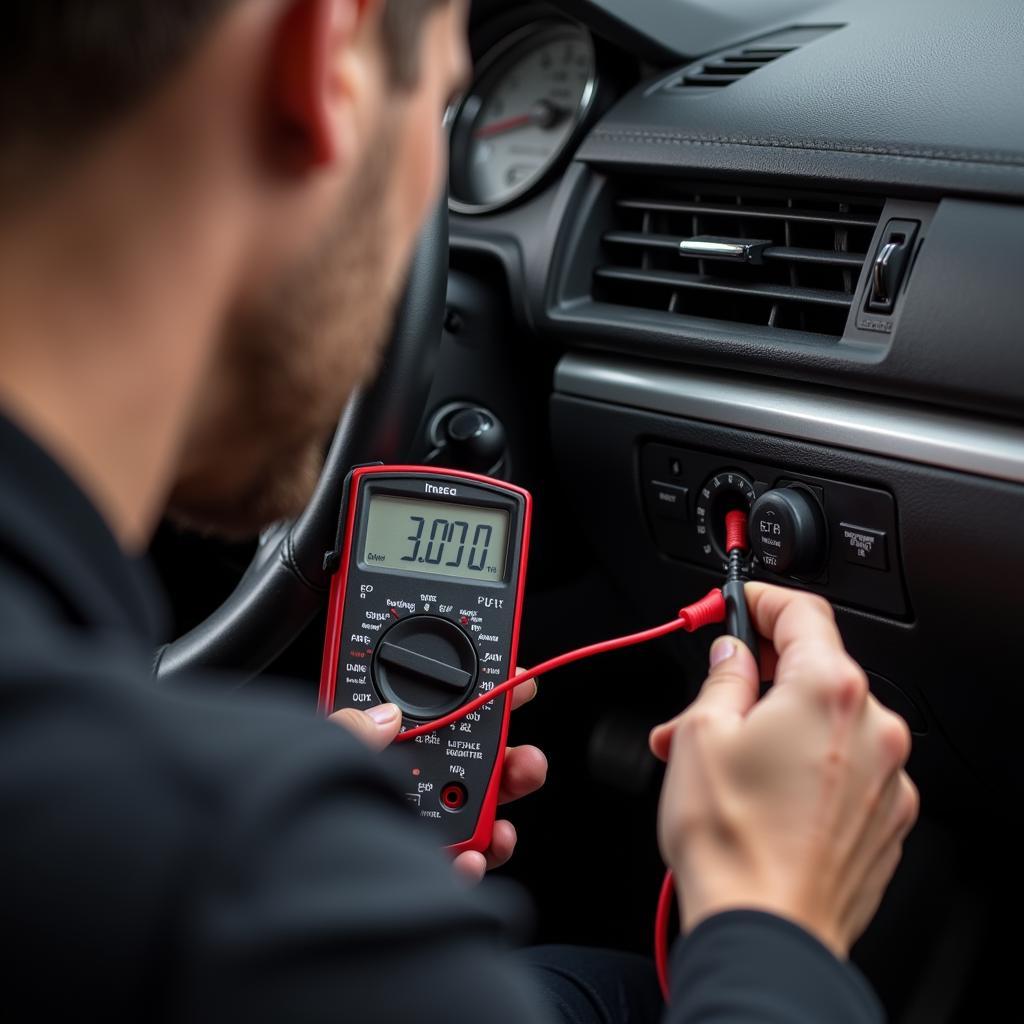The annoying “Windows Detected a Hard Disk Problem” message can be a real headache. This guide will help you understand why you’re seeing this warning, how to diagnose the actual problem, and ultimately, how to disable the notification, if appropriate. We’ll cover everything from basic checks to more advanced solutions, so you can get back to using your computer without that nagging pop-up.
Understanding the “Hard Disk Problem” Message
This message is Windows’ way of telling you it suspects something’s wrong with your hard drive. It doesn’t necessarily mean your hard drive is about to fail, but it’s a crucial warning sign you shouldn’t ignore. It could indicate a range of issues, from minor errors to serious hardware problems. Before you try to disable the “Windows detected a hard disk problem” message, it’s essential to understand what might be causing it.
Common Causes of the Error Message
- Bad Sectors: These are small areas on your hard drive that can’t store data reliably.
- Failing Hard Drive: A clicking noise, slow performance, and frequent crashes alongside the error message could indicate a failing hard drive.
- Corrupted System Files: Damaged system files can interfere with Windows’ ability to communicate with your hard drive correctly.
- Driver Issues: Outdated or corrupted hard drive drivers can also trigger the error.
- Connection Problems: Loose cables can cause communication issues between your hard drive and the motherboard.
Diagnosing the Problem
Before disabling the notification, diagnosing the root cause is paramount. Here’s a step-by-step guide:
- Check Disk (CHKDSK): Run CHKDSK to scan your hard drive for errors and attempt to repair them. Open Command Prompt as administrator and type
chkdsk C: /f /r(replace C: with the drive letter if necessary). - S.M.A.R.T. Status: Check your hard drive’s S.M.A.R.T. status. This built-in monitoring system can provide early warnings of impending failure. Many free utilities can access this information.
- Update Drivers: Update your hard drive drivers. Go to Device Manager, find your hard drive under “Disk drives,” right-click, and select “Update driver.”
- Check Connections: Physically inspect your hard drive’s connections to ensure they are secure.
Disabling the “Windows Detected a Hard Disk Problem” Message
While it’s crucial to address the underlying problem, you can temporarily disable the notification if you’ve determined it’s a false positive or you’re waiting for a replacement drive. However, proceed with caution and understand the risks involved.
How to Disable the Notification via the Event Viewer
- Open the Event Viewer by searching for it in the Start Menu.
- Navigate to “Applications and Services Logs” -> “Microsoft” -> “Windows” -> “DiskDiagnostic” -> “Operational.”
- Right-click on “Operational” and select “Properties.”
- Under the “General” tab, uncheck the “Enable logging” box.
“Disabling the notification doesn’t fix the problem,” says John Smith, Senior Automotive Electrical Engineer at Autotippro. “It merely hides the symptom. Always address the underlying issue to prevent potential data loss.”
Conclusion: Addressing “cara disable windows detected a hard disk problem”
While disabling the “Windows detected a hard disk problem” message can provide temporary relief, it’s crucial to remember this isn’t a permanent solution. Always investigate and resolve the underlying issue to prevent potential data loss and ensure your system’s stability. If you’ve exhausted all troubleshooting options and still face the issue, consider contacting a professional for assistance. Don’t hesitate to reach out to Autotippro at +1 (641) 206-8880 or visit our office at 500 N St Mary’s St, San Antonio, TX 78205, United States for expert advice and support.
“Regular backups are essential,” adds Maria Garcia, Lead Technician at AutoTipPro. “They’re your safety net in case of hard drive failure.” Remember, a proactive approach is always better than a reactive one when it comes to your data.
FAQ
- What if CHKDSK doesn’t fix the problem? Try running a more comprehensive diagnostic tool from your hard drive manufacturer.
- Can I still use my computer if I see this message? Yes, but back up your data immediately. The drive might fail soon.
- Is replacing the hard drive difficult? It’s relatively straightforward. Numerous online tutorials can guide you through the process.
- How can I prevent hard drive problems? Regular maintenance, such as defragmentation and keeping your system cool, can help extend the life of your hard drive.
- Should I disable the notification if I’m getting a new hard drive soon? You can, but ensure you back up your data before the old drive fails.
- What is the difference between /f and /r in CHKDSK? /f fixes errors, while /r locates bad sectors and recovers readable information.
- Is it safe to disable the hard disk problem notification permanently? No, it’s highly discouraged. You should address the underlying issue, not hide the warning.






Leave a Reply